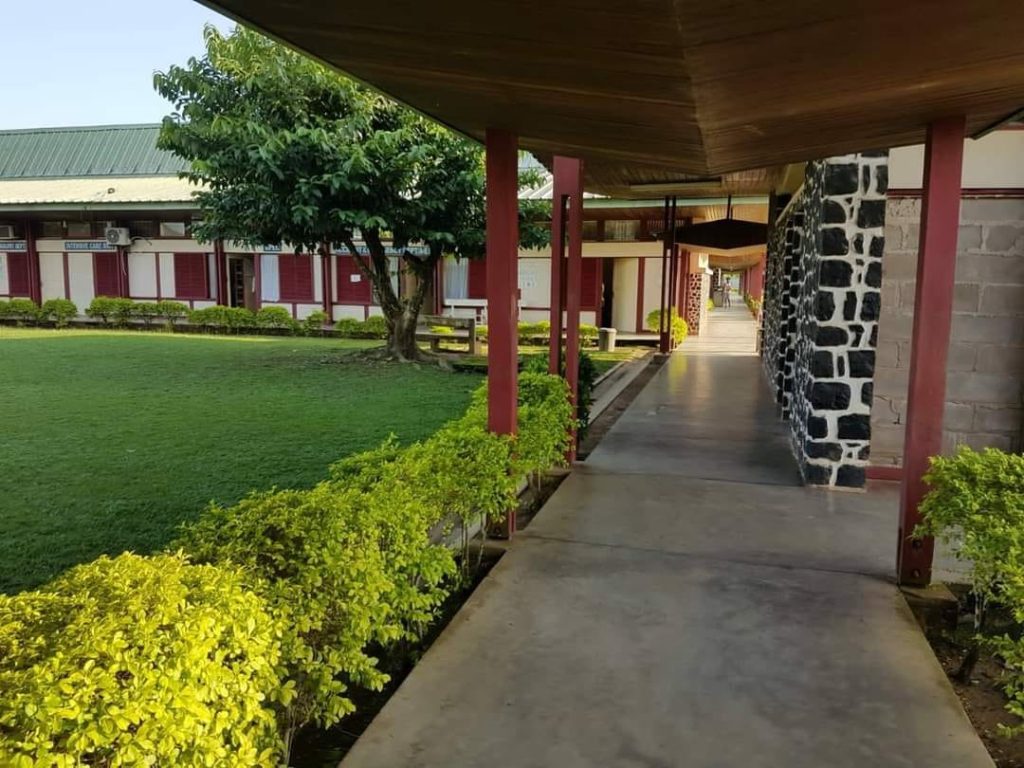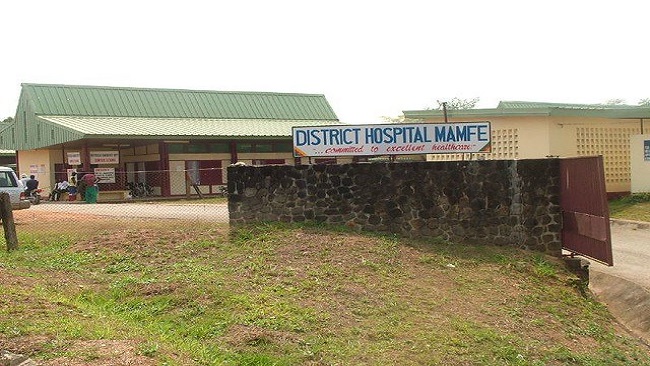Mamfe District Hospital Disaster: Who is to blame?
It is now almost two weeks since the Mamfe District Hospital was brought down by some unscrupulous arsonists and while fundraising efforts are underway to help with the reconstruction of the hospital and maybe the purchase of state-of-the-art equipment once the facility is restored to its pristine state, many people are still asking why a hospital which is needed by everybody should be the target of arsonists.
For over five years, the country’s military has been engaged in a war with those the government describes as separatist fighters seeking the total independence of Southern Cameroons; a war which has already killed more than seven thousand Cameroonians.
For five years, there has been a lot of destruction of national assets and landmarks, and hundreds of children in the English-speaking parts of the country are still not going to school because of threats by Ambazonian fighters who hold that keeping children at home could be a good bargaining chip which could force the government to the negotiating table. The government, for its part, is not bulging and the blood is still flowing throughout the two English-speaking regions of the country.
Fire has been used by both sides as a weapon of war over the last five years, making it hard to clearly apportion blame when it comes to the burning of the Mamfe General Hospital. The country’s military was the first to employ fire in its bid to frustrate efforts by Ambazonian fighters to create an independent state.
The elderly just like kids were burnt by the military in places like Kwakwa and Muyengue in the country’s Southwest region. In both incidents, the military was caught with its hand in the cookie jar setting houses on fire to demonstrate its determination to stop the separation of the country.
This tactic has not only radicalized many English-speaking Cameroonians, but it has also been counterproductive. Instead of stopping the separation of the country, it has created a lot of bitterness and a strong feeling of revenge which makes it hard for any real reconciliation to take place.
Schools have been burnt, hospitals have been torched and even other government landmarks have been set ablaze by some arsonists who hold that the best way of sending out the predominantly Francophone government out of Southern Cameroons is by burning down facilities which provide services to Southern Cameroonians.
The military had indeed set a very wrong precedent and the government, for its part, has hardly demonstrated any real goodwill to address the concerns of the country’s English-speaking minority. Politics seems to be the objective of every government endeavor while the population takes the full brunt of the fighting. Women get raped, children get undressed in public by Amba fighters because they want to seek knowledge in schools and innocent civilians get maimed if they are not killed when caught in the crossfire.
Each time there is an arson, both factions trade accusations, making it hard for a genuine investigation to be conducted. While it is indisputable that the military has used arson as a weapon of war, it must also be highlighted that no army in the world can clearly boast that its soldiers are disciplined enough not to commit atrocities.
American and British soldiers have been caught on many occasions on the wrong side of the law while in war zones and their atrocities are usually uncovered by human rights groups and even the military itself.
It is therefore preposterous to only apportion blame to the Cameroon military while Amba fighters, who have many undisciplined elements in their ranks, have also distinguished themselves through their atrocities and even the use of fire and other ungodly methods to prosecute their war.
Many students in rural areas of the English-speaking parts of the country have been refused access to schools by Amba fighters. Parents who can afford it have sent their children to towns and cities in French-speaking Cameroon as the self-destruction continues.

Amba fighters have torched many government vehicles, including military equipment during this war. They have torched trucks owned by breweries located in the French-speaking parts of the country and even now, those who are caught with drinks produced by Brasseries du Cameroun are tortured if they are lucky and even killed if Amba boys are having a bad day.
All Amba fighters are not saints and angels. Some of them have gained an unfortunate reputation as arsonists, kidnappers, and killers. Their original mission was to protect the population, but they have now turned against their own people. Torture has become their weapon of choice, and this is really hurting their cause. The population is now caught between the devil and deep blue sea. Even soldiers who are supposed to protect the population sometimes go on an unprovoked killing spree, making it hard for the population to trust them.
As the fighting continues, more atrocities will be committed, and it will be hard to determine who is responsible for such atrocities. Only a fair and objective investigation conducted by international organizations will bring out the truth on the burning of the Mamfe General Hospital which has left residents of Mamfe desperate and frustrated.
However, if the government decides to change its approach to the issue, things could be different. Dialogue, indeed, genuine dialogue, will be the right answer to a situation which continues to fester on a daily basis, as both sides double down and seek to demonstrate that they are winning the war.
Indeed, nobody wins a war. At the end of the day, everybody will be a loser, as many lives would have been ruined and national landmarks destroyed. The sooner both camps realize the folly in their action, the better for a country which would have been a model on the continent if its linguistic riches had been developed.
By Joachim Arrey, Ph.D





